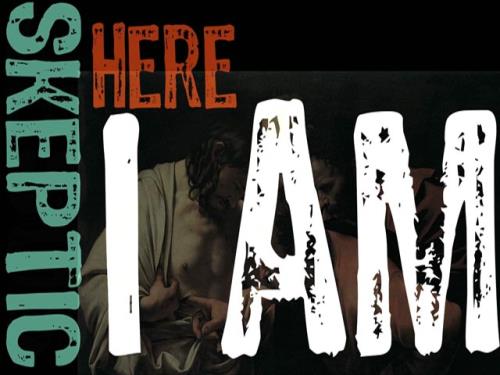-
A Living Saviour
Contributed by John White on Apr 25, 2019 (message contributor)
Summary: We have once again observed the season known to the world as Easter. A high and holy day that is the focus of many Christian calendars.
A LIVING SAVIOUR
Luke 24:1-8 “Now upon the first [day] of the week, very early in the morning, they came unto the sepulchre, bringing the spices which they had prepared, and certain [others] with them. And they found the stone rolled away from the sepulchre. And they entered in, and found not the body of the Lord Jesus. And it came to pass, as they were much perplexed thereabout, behold, two men stood by them in shining garments: And as they were afraid, and bowed down [their] faces to the earth, they said unto them, Why seek ye the living among the dead? He is not here, but is risen: remember how he spake unto you when he was yet in Galilee, Saying, The Son of man must be delivered into the hands of sinful men, and be crucified, and the third day rise again. And they remembered his words.. ‘
We have once again observed the season known to the world as Easter. A high and holy day that is the focus of many Christian calendars. A time when many merchants and men of the world are focused upon the commercial aspect of a holiday that has become all too worldly to be taken too seriously as a time the world celebrates the resurrection of a living Saviour. But it is a time when many innocent children are once again sadly given the obvious impression that bunnies and eggs are the main reason for the season. A time when such myths may once again undermine the serious effort of committed parents to separate fact from fiction and negate the effect of the equating the eternal truths of deity with the mythologies of materialism and mysticism.
In the beginning it was not so. To the early Christian the tremendous triumph of the resurrection was much more central to their daily existence and witness than to the nominal Christian today. It seems for many years following this eventful resurrection morning it was impossible for these simple fisher folk, men and women of the true faith, to even meet casually and unexpectedly without greeting each with the triumphant, enthusiastic and heartfelt cry, “He is risen!” And then receive in response from a brother or sister of the faith an equally excited exclamation, “The Lord is risen, indeed!” For many years thousands of such true believers met daily in their simple assemblies of immersed believers in almost every provincial city or village in the Roman Empire. As they came together they greeted each other with the cry, “He is risen!” The central focus of their coming together and going out into the world to share the gospel was the good news of a living Saviour.
The only special day they used for a special emphasis or special celebration of the resurrection was the Lord’s day; the day following the Sabbath in the Jewish calendar. It was so named because of His resurrection. This day was to later become known as Sunday, named by a Roman Emperor after the Roman sun god.
History teaches us that the name and many of the practices associated with the annual date called Easter came into being many centuries later. Eastre was an old Teutonic goddess of Spring. Eggs, bunnies etc., all have to do with the rites of Spring that developed around pagan celebrations.
If all this is true, and it is, some might legitimately ask, “Why do you as a Christian make a special thing of this season?” In fact, I received a phone call yesterday from a stranger, a brother in the far outback of Queensland, who had read my regular column in the “Biblical Fundamentalist,” entitled, “Doing Things God’s Way.” In it I had said, “It would be difficult to over-emphasize the importance of doing things God’s way to the exclusion of all other ways. But to do so seems to be one of the greatest problems man faces. Man seems obsessed with spiritual innovation. He constantly seems to be trying to re-invent the spiritual wheel. Any way, but God’s way, seems to be best way as far as man is concerned.” It seems this brother was in a dialogue with a pastor and others about scripture versus tradition. He felt my article backed his stance. Their discussion was focused upon pagan holidays observed by Christians. The question was legitimate and I trust my response was helpful.
In response to such legitimate questions, I must state emphatically that answers do not come easily. The risk of misunderstanding is great. I do not condemn any brother or sister who may differ with me on the issue and absolutely ignore the season and who has nothing to do with any observance. Perhaps even refusing to preach on the subject during the time period. But I would also plead that my view point be given respectful consideration as well.

 Sermon Central
Sermon Central



